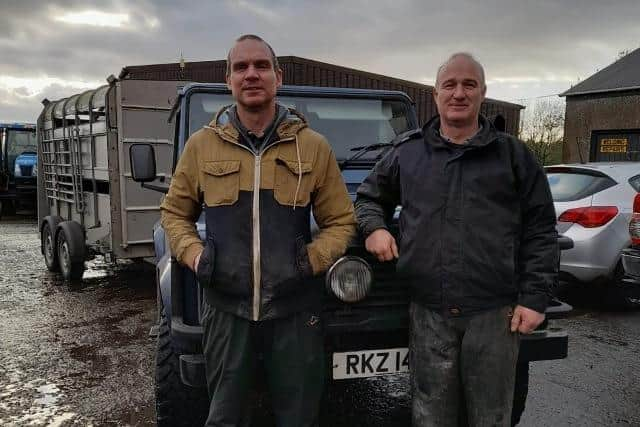Nature Friendly Farming Network: Working with the landscape to better farm business
and live on Freeview channel 276
Our family has been farming here for generations, but in recent years, farming has faced multiple challenges of making ends meet while input prices have soared.
On these hills, food production is at the mercy of the land's elements and characteristics.
Advertisement
Advertisement
While farming here comes with its challenges, it also brings abundant opportunities.


Over the last few years, we’ve sought to capitalise on the natural assets at our disposal.
Our cattle and sheep are hardy breeds and can survive rough grazing in this landscape while helping to restore habitats.
The hills here are one of the last remaining strongholds for Curlew, and for the last five years, we’ve been involved in the Environmental Farming Scheme, which aims to support their protection.
Advertisement
Advertisement
With the support of Katie Gibb, a dedicated advisor from the RSPB NI, we’ve adopted changes to our grazing management to provide the conditions for these birds to thrive.
We cut rushes before the nesting season, graze sheep through the winter, and hold back the grazing season for our cattle.
This is done to create a highly functional habitat where our livestock play a key role in ensuring soil quality and better overall profitability for the farm business.
We’ve found a balance with the landscape by reducing our stocking rate, which is better on the balance sheet and has helped improve our stock's health.
Advertisement
Advertisement
Environmental delivery is often viewed as a constraint on farming progress, but we’ve seen the opposite.
By cutting down on pesticides and changing to prevention drugs rather than antibiotics, we have saved time and money, helping with the overall longevity of our farm.
We have seen the quality of our produce improve because of better management of the hill ground.
Our blackface ewes are moving around in bigger groups which means they have fresher grazing and better health, resulting in a better lambing season.
Advertisement
Advertisement
Given the soaring cost of inputs, a volatile marketplace and increasingly unpredictable weather, we believe the changes we’ve made will make us more resilient in the long term.
In areas like ours, farming is integral to delivering for the climate, improved water quality and biodiversity recovery.
Farmers are essential to achieving these aims, but we need the right policies which help embed the environment into the heart of farm business decision-making.
With a clear vision and purpose, this can provide more local jobs, produce food profitably and farm to the environment’s benefit.
Advertisement
Advertisement
It’s not a case of either or, but in harnessing the multiple opportunities that a farmed landscape provides.
The Nature Friendly Farming Network is led by farmers across the UK with a passion for sustainable farming and nature. The network is open to farmers and the public alike and there is no cost to join. Find out more at www.nffn.org.uk